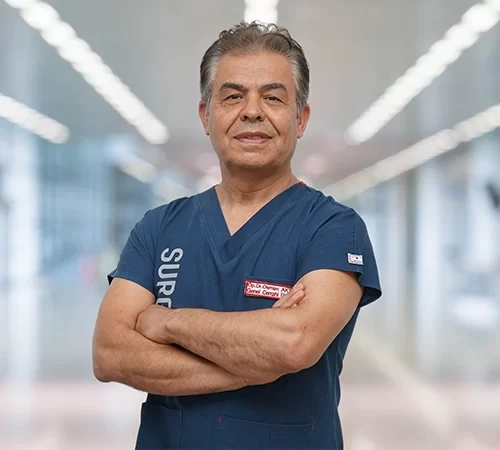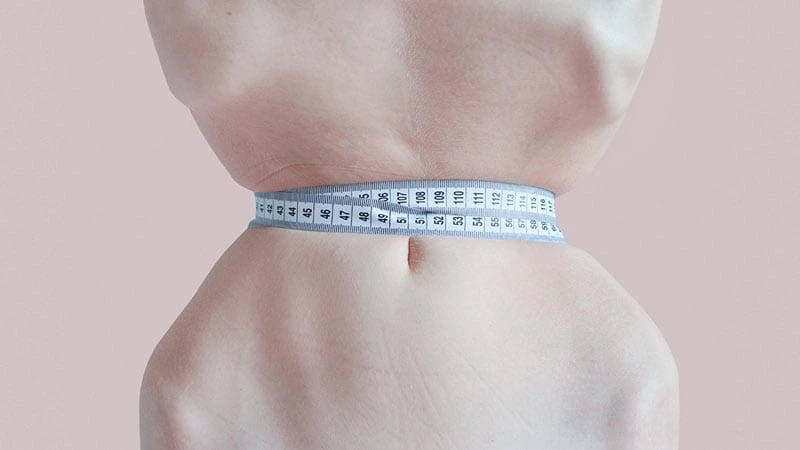Avicenna Hospitals Group provides obesity diagnostic and treatment procedures on both Asian- European sides in Istanbul. If you are considering obesity surgery, Avicenna Hospital’s expert team is ready to assist you.
Avicenna Hospital’s obesity department provides a full range of medical and surgical therapies for the treatment of individuals who suffer from obesity, to improve their health by losing weight, based on the most up-to-date clinical studies and specialized outpatient and inpatient services. Furthermore, consultant obesity physicians, obesity surgeons, anesthetists, psychologists, clinical nurse specialists, and bariatric dietitians are all part of our professional team. Patients are examined for obesity, diet and lifestyle, psychological issues, and overall health. Based on the results, the doctor advises a treatment plan for diet and exercise.
Obesity
Obesity is a condition in which the body’s health is in danger by excessive and abnormal fat buildup. Hormones and substances produced by fat tissue can impact the entire body. Some hormones enhance hunger and contribute to obesity development. Extra weight gain not only restricts your activities but also puts you at risk for serious diseases.
What is obesity surgery?
Obesity surgery is a procedure preferred when all weight loss attempts are unsuccessful in people with a body mass index significantly higher than normal. Many different procedures can be applied in this operation, also known as bariatric surgery, to reduce appetite and stomach capacity in a condition known as morbid obesity. This procedure, like any other, has risks and advantages afterward. However, in cases where spontaneous weight loss is insufficient, an obesity operation can cause extremely successful results. In obesity surgery, not all patients receive the same treatment.
In an obesity operation, instead of a large abdominal incision, obesity surgery requires only a few minor incisions to get access to the abdomen which is called the laparoscopic technique. so, there is less discomfort, and patients are discharged in a short time.
Obesity Surgery Options
Among the most preferred types of bariatric surgery;
Candidates for Obesity Surgery
Unfortunately, not everyone who is overweight can get rid of their weight surgically. obesity surgery criteria:
- If you’re between the ages of 8 and 65 and have a health condition that can have obesity surgery
- Having a body mass index above 35
- Having diseases that develop due to obesity and treatment is not possible
- Obesity-related problems such as type 2 diabetes, hypertension, sleep apnea
- No alcohol and drug addiction
- Willing to have obesity surgery and be able to keep up with the weight loss process
In addition, the body mass index can go down to 30 for surgery in individuals with metabolic disorders. You need to be examined by specialist doctors to find out whether you can have obesity surgery by taking into account all the circumstances.
Body Mass Index (BMI) is computed by dividing your weight by the square of your height (kg/m2) to evaluate the degree of obesity.
Body Mass Index (BMI) classification
- Underweight: BMI of less than 18.5.
- Healthy range: 18.5 to 24.9. Not a candidate for the weight-loss operation.
- Overweight: Between 25 and 29.9. To help you lose weight, then you can consider a gastric balloon.
- Obesity: Between 30 and 34.9. You could be a candidate for weight-loss surgery. So, the gastric band is a good option.
- Severe obesity: Between 35 and 39.9. A gastric band or gastric sleeve surgery may be an option for you.
- Morbid obesity: Between 40 and 49.9. You almost qualify for obesity surgery. your surgeon may prescribe a band, sleeve, or gastric bypass.
- Super Obese: more than 50. You can have a gastric balloon to reduce weight as a precaution before undergoing a surgical treatment such as a gastric band or bypass.
Bariatric Surgery Treatment Methods
Obesity can be treated using a variety of surgical techniques. The age, weight, and other health issues of the patient all play a role in the surgical approach chosen. The above-mentioned bariatric surgery treatment approaches can be employed if other aspects are taken into account.
Gastric Sleeve
The sleeve gastrectomy is an obesity operation that is both rapid and safe. It’s a sleeve technique in which doctors shape the stomach into a sleeve. It lowers the risk of cardiovascular disease, type 2 diabetes, high cholesterol, and high blood pressure. The surgery can be performed laparoscopically or by putting a tube into the esophagus to link it to the stomach. The procedure might remove up to 75% of the stomach. As a result, your stomach shrinks, and you won’t be able to consume much.
Gastric Bypass
It’s a technique for reducing food intake by realigning the digestive tract. In 12 to 18 months, this procedure can reduce weight by 60 to 80 percent. During gastric bypass surgery, the doctor changes the stomach and small intestines. Food goes in a different route here, and the stomach can no longer accommodate it. Patients should take vitamins after surgery to compensate for any mineral deficits.
Gastric band
During this procedure, surgeons place a silicone band around the top of your stomach, shrinking it by around two-thirds. The procedure’s goal is to limit how much food you can consume. With this method, weight reduction takes longer and is more gradual. You may lose weight, although it will be less than with other surgical procedures. It offers the advantages of being reversible, having no long-term effects on the stomach, being less intrusive, and having a lower risk of problems.
Gastric balloon
Not everyone is a good candidate for extensive weight loss surgery. If diet and exercise aren’t working and your BMI isn’t high enough for surgery, an intragastric balloon system, which involves inserting a silicone ball filled with saline into the stomach, is a less invasive weight loss surgical option. The patient eats less as a result of the intragastric balloon. It’s also appropriate for folks who are obese and need to drop weight before surgery.
Like other weight-loss operations, an intragastric balloon necessitates a healthy lifestyle. You must adjust your diet and include exercise in your routine to ensure the procedure’s long-term effectiveness.
Weight Loss after obesity operation
Patients should keep a healthy diet and exercise program after undergoing obesity surgery. There is a relation between the patient’s commitment to this routine and the effectiveness of the operation. Obesity surgery patients can lose weight if they stick to a diet and exercise routine after surgery. As a result, Experts deliver this treatment to assist patients to regain a healthy weight in a year.
Obesity Surgery Risks
Those with morbid obesity have significantly more risks as a result of their overweight than patients who undergo gastric surgery. If the disease is not treated, they may die 10 to 15 years sooner than their contemporaries, because morbid obesity is a fatal condition.
As with the risks of every surgical operation, there are some disadvantages to bariatric surgery. Among them;
- Abdominal hernias after surgery,
- blood clotting,
- Small intestinal ulcer
- repetitive vomiting
- Ongoing stomachache
- Inflammation of the gallbladder
- Formation of stones in the gallbladder
It is one of the most common surgical complications. Various ailments and skin sagging can be seen as a result of rapid weight loss. So, You must notify your doctor of all adverse conditions.
Benefits of Obesity Operation
After getting rid of excess weight, many positive changes will be waiting for you in your life. The benefits of obesity surgery are:
- Healthy weight loss
- Lifting the movement restriction
- Achieving a healthy physical appearance
- Improvement in unstable hormonal changes,
- prolongation of life
- Recovery from obesity-related diseases
- Psychological recovery
It is possible to talk about the positive aspects such as All of these positive developments will motivate obese patients day by day, as a positive aspect of the surgical process. In addition to the healthy and fast weight loss process, the happiness of getting closer to the desired image when looking in the mirror has great psychological positive effects on individuals.

Prof. Dr. Mehmet Yıldız
General Surgery



Leave a Reply